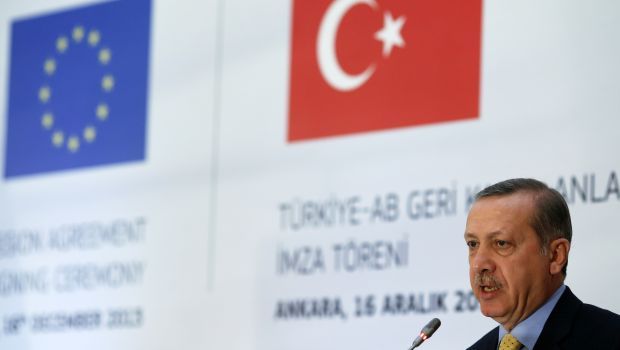Given the diversity of geopolitical and economic challenges faced by the Arab world, a long-term alliance between Turkey and the Gulf states can only be beneficial for the region. There are several reasons why such an alliance can be instrumental in helping to bring more stability and prosperity to a turbulent region. First, it is clear that both partners share an interest in preventing the increase in political instability that can have detrimental effects on overall security in the region. It is no coincidence that Turkey closely aligned itself with Saudi Arabia and Qatar in an effort to force Syrian President Bashar Al-Assad’s regime out of power. Those parties realized that Assad’s role had become a destabilizing factor not only for Syria, but also for the region. So, unlike Iran, they shifted their priorities towards forcing a regime change in Syria. This alliance was strengthened over time through regular political and diplomatic consultations over the developments in Syria, and also through an attempt to coordinate international support for the Syrian opposition, with a view to hastening the forced exit of the Assad regime.
Turkey and the Gulf countries also share a similar vision concerning the potential role of Iran in the region. Ankara is as much opposed as its partners in the Gulf to the military dimensions of Iran’s nuclear program. Turkey has therefore been a strong supporter of international efforts to find a peaceful solution to the Iran nuclear crisis. It even took the lead in 2010, in cooperation with Brazil, to make a deal with Tehran that would have shipped most of Iran’s enriched uranium abroad.
Turkey and the Gulf states can also be instrumental partners in helping the region overcome its economic difficulties. These are countries with strong economies and significant economic resources, and they are increasingly interested in leveraging their economic capabilities to help the economies of regional states that are in distress. Thus Turkey was one of the few countries that extended an unconditional loan of 2 billion US dollars to the post-Mubarak government in Egypt. Turkey is also one of the world’s largest donors of humanitarian assistance, giving out figure more than 1.5 billion dollars in aid per year. Likewise, the Gulf countries have also extended significant economic assistance to the post-Mubarak—but also the post-Mursi government—in Egypt. It is also known that there are high expectations from Turkey and its Gulf partners to invest in large infrastructure projects in the Middle East.
But beyond the regional challenges that tend to militate for a closer alliance between Turkey and the Gulf states, the global political setup is also conducive to this outcome. The ongoing economic crisis in Europe has deeply affected the EU’s ability to engage as a more constructive and influential player in the Middle East. On the US side, President Barack Obama’s policies have restrained US ambitions, and US public opinion is very much opposed to more US presence in the Middle East. This dynamic of the gradual disengagement of the global players necessarily augments the potential role of regional players. Global players are increasingly aware of the limits of their own power and abilities.
The outcome of this unavoidable rebalancing is the realization that on the one hand that more efforts are needed to shape common agendas between the global and regional powers, but on the other hand regional alliances have a more important role to play in helping deal with the region’s problems. This sense of regional ownership and regional initiative is set to shape the future of international politics. This is perhaps the main reason why a more long-term alliance between Turkey and the Gulf states will be condoned by the West.
Today, the main obstacle regarding the emergence of such an alliance is the vastly differing viewpoints on the political developments in Egypt. Turkey has been very critical of the new Egyptian regime and has openly supported the Muslim Brotherhood. But with a better understanding of Egyptian political dynamics, a sense of realism will gradually be regained in Ankara, allowing a more sustainable alliance to emerge between Turkey and the Gulf States on many of the regional challenges that will continue to confront them.
The counterpoint to this article can be read here

TURKEY HAS ALIENATED ITSELF FROM EVERY SINGLE COUNTRY IN THE REGION AND OUTSIDE THE REGION. IT HAS PROVEN TO BE NON RELIABLE, BEING PRISONER OF PARANOID MOOD SWINGS OF ERDOGAN, AND IRRESPECTIVE OF ITS NATIONAL INTERESTS.